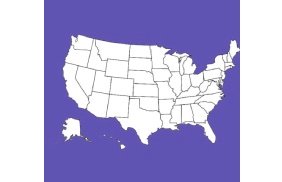In the summer of August 2022, and again in February 2023, a North Carolina attorney wrote to the Drug Enforcement Administration (DEA) to ask about the status of certain cannabinoids under the Controlled Substances Act (CSA). His question was whether THC acetate ester (THCO), a lab-created substance used to synthetically derive THC delta-8 and delta-9, was a controlled substance and therefore illegal. In a February 13, 2023, response letter, the DEA concluded that delta-8 and delta-9 THCO were, in fact, illegal controlled substances.
The History of Delta-8 and Delta-9
In 2018, Congress passed the Farm Bill that legalized products containing up to 0.3% of delta-9 THC. This new law provided an exception to the classification of cannabis as a controlled substance under the CSA. (You can read a great article on the history and possible future of the Farm Bill here.)
Since then, there has been an explosion of cannabinoids in markets across the country. Two of the best known of those cannabinoids are delta-8 and delta-9, which you have likely seen for sale everywhere from gas stations to CBD stores.
Delta-8 and delta-9 THC, when naturally derived from cannabis, meet the legal definition of “hemp” under the 2018 legislation. Since then, the DEA has held firm in its position that delta-8 and delta-9 THC that meet the legal definition of hemp are not controlled substances, and federal courts have agreed.
The wrinkle here is that delta-8 and delta-9 can also be synthetically derived using THCO. When delta-8 and delta-9 are synthetically derived and contain THCO there is more confusion about whether they meet the legal definition of hemp under the 2018 Farm Bill and whether they should be classified as controlled substances.
The DEA’s Analysis
The DEA’s February 13 letter aims to clarify that confusion by stating that delta-8 and delta-9 THCO do not occur naturally in cannabis, can only be synthetically derived, and “therefore do not fall under the legal definition of hemp.” And, for those chemistry buffs in the audience, the DEA’s letter even included illustrations of the chemical structures of delta-8 and delta-9 THCO and stated that those chemical structures were used to make the DEA’s determinations.

What Does This Mean for CBD Shops, Dispensaries and Consumers?
At this juncture, it is unclear what enforcement of the sale and consumption of delta-8 and delta-9 THCO will look like. However, it is likely that the market for cannabinoids will shift towards only naturally derived delta-8 and delta-9 products. For those of you with skin in the game here, you may want to rethink your manufacturing and/or distribution plans in relation to products containing THCO and shift to only those products that are naturally derived and still meet the legal definition of hemp. Consumers are likely to start paying more attention to their products on the heels of this announcement and, unlike in the past, may start asking about whether products are naturally derived or synthetic. This shift will likely take some time, and it remains to be seen what enforcement measures will expedite the process. One thing is clear though: Naturally derived delta-8 and delta-9 THC remain legal under the definition of hemp.




